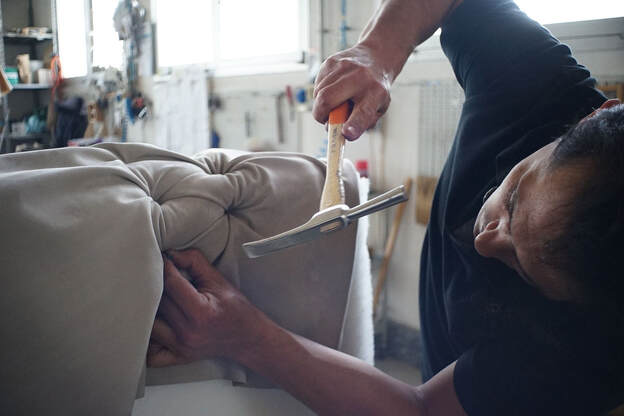What types of businesses are for sale?
CheItaly probably is not the first place you think of when it comes to making high-tech machine tools, but it has a long history of producing high quality equipment that helps manufacturing plants operate.
There are a lot of different types of companies for sale, but in order to play to the country’s strengths, an investor should look primarily at manufacturing companies, namely food manufacturers, equipment manufacturers, and product manufacturers. Of course there are also plastics firms, maintenance companies, installation companies, service companies and engineering companies. The main exports are textiles and clothing, motor vehicles, chemicals, engineering products, production machinery, transport equipment, and food.
Companies for sale in Italy are generally split into small, medium and large determined by yearly revenue. A small business would generate between €1-5 million, a medium company €5-10 million, and a large company in Italy anything north of €10 million.
There are a large number of online sites that track businesses for sale, and most advertise for both buying and selling of businesses. Check also our articles about shell companies in Italy, for more informations.


What are the benefits?
There are plenty of benefits to buying a business in Italy, one of them, as mentioned, being its strategic location, making Italy accessible to other neighboring European countries with little effort. The Italian government is very favorable to startups often including a long period of tax deferment.
Those looking to buy a business in Italy would also be eligible to receive a long-term (5-year) residence permit as the owner of a property. Check out our Italian residence guide for more informations.
What are the drawbacks?
Among the expected challenges in Italy is the slow functioning and lack of transparency of the departments of the public sector. (The bureaucracy is a drawback in every aspect of Italian life).
Another disadvantage includes difficulty in securing credit, as many banks are particularly careful since the outbreak of the virus and the increased risk of defaulting. This is accompanied by the complex tax structure.
Business owners may find that the need for being conversant with the local language could also be a concern, as Italian is the only language used for all documents per EU regulation—i.e. all businesses must use paperwork, contracts included, in the official language of the country.
How has COVID affected the market?
Multiple lockdowns and waves of uncertainty are weighing heavily on activity. Government support has temporarily ameliorated the effects on firms and households, but this is running out. Many factories have continued to operate despite a second lockdown and enhanced social restrictions that are aiming to slow the spread of the virus. The only market where there has been an enormous increase in the number of transactions is in Technology.
The government announced plans back in March to boost the economy, hoping for a Q4 jump in 2020, by injecting €3.6-billion. Manufacturers’ supply chains have remained largely unscathed and exports starting to rebound, particularly to Asia. Businesses and franchises were initially hit hard, but are beginning to recover. GDP is projected to expand by 4.3% in 2021 and another 3.2% in 2022.
Job creation will most likely return by 2022, when an effective vaccine is expected to have been deployed though there are some vaccines ready to be rolled out. This will help to stimulate consumption and ease the current saving of funds.
What is the current outlook?
Italy’s machinery production output has grown more than twice as fast as Germany’s since 2014. This may be somewhat of a rebound in the market following significant declines in 2012 and to a lesser extent in 2013. For the period 2019 to 2023, it is projected that Italian machinery production output will grow with a compounded annual growth of 1.6% to reach a value of $102 billion in 2023.
In order for the stimulus to be effective it must be met with continued structural reform, which Italy seems committed to: regulatory regimes can be simplified, long delays in the court system dealt with, taxes and spending policies can be further reformed. It’s a laborious process, but one that is long overdue.
Check out also my videos about opening a partita IVA in Italy (below) and Innovative startups in Italy.




Hello Nicolo,
My name is Nick Ruggiero and I’m involved in the food industry and nutraceuticals industry here in Canada and USA. I would be interested in knowing if there are any Italian food companies interested in setting up a production facility in Canada to serve North America.
Hello,
How do I find a listing of Italian manufacturing companies for sale? Specifically interested in those that manufacture fabrics for swim, workout apparel and elastics.
Thanks
You can get in touch and we are happy to support your query
Good morning.
My name is Thomas from Indonesia. Currently we produce specific industrial gas for crop storage uses.
I am looking for industrial gas company (still active or already bankrupt) to cooperate with. For sales worldwide.
Thank you.
Can you please send us an email with your request?
Dear Sir
have a nice day
we are almatin co for trade and industry in syria would like to buy single super phosphate plant (used or new) hope you can help (capacity 300-400 tons/day)
waiting your appreciated reply
best regards
khaled tarsha
mobile/whatsApp:00963936229919
please contact us using the form in the website
Dear Concern
I am from Bangladesh and my company is looking for a closing factory in furniture industry to acquire from Italy
I will write about our detail background if there is any lead..
I’ve sent you an email. Please check your SPAM folder too